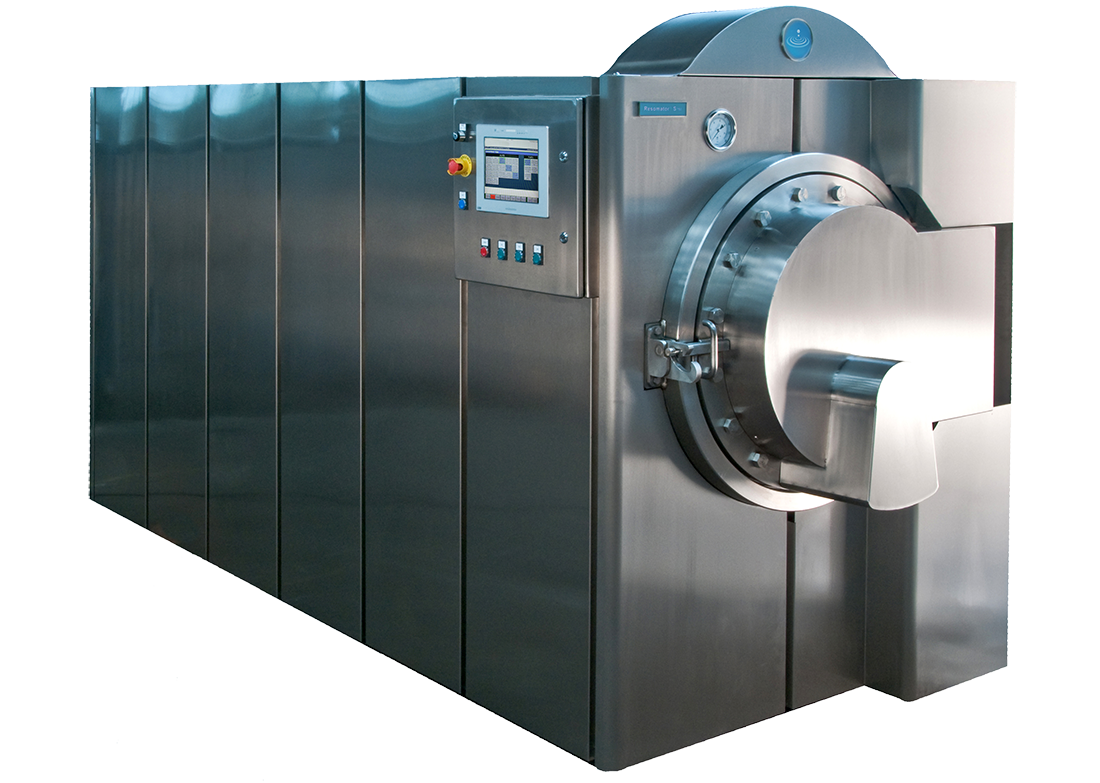Resomation: sustainable water cremation

Water cremation is the environmentally sustainable alternative to flame cremation and burial. For the more than 870 privately-owned, independent funeral homes affiliated with SAIF, the prospect of offering this technology alongside local authority and private crematoria could help deliver a step change in funeral arrangements they can offer to families.
Here, Howard Pickard, MD of Resomation Ltd, the company behind water cremation in the UK, outlines the benefits this alternative to flame cremation and burial will bring, while addressing key challenges facing the funeral profession.
Water cremation is an environmentally responsible alternative to flame cremation and burial that uses water instead of flame to gently return the body to ashes. It is already permitted in more than 17 US states and three Canadian provinces, providing people in North America with a new choice at the end of life.
In the UK, interest in this innovative process continues to grow as people are increasingly looking for more environmental alternatives, both in life and in death.
With 600,000 funerals taking place each year in the UK, available burial land continues to decline, and the only mainstream alternative is flame cremation. Water cremation offers a more natural, gentle and sustainable alternative for families. It has the potential to support the funeral profession to improve its environmental credentials and meet the capacity challenges of a rapidly growing population, by using innovative new water technologies.
Independent reports have found that water cremation has environmental benefits over other end of life options, including a significantly smaller carbon footprint, less energy consumption, and no airborne release of harmful emissions such as nitrous oxides, mercury from dental amalgam and dioxins. But the benefits go beyond its environmental credentials.
Water cremation combines environmental benefits with a practical solution to help address capacity issues and increase choice in the funeral market.
So how does it work?
To start with, when arranging a funeral service for water cremation, families can be offered the exact same service that they would have for flame cremation. The difference will be that when the coffin is removed from sight, it will be taken to a water cremator instead of a flame cremator. The family can be assured of a service that suits their requirements.
When the body is removed from sight, it will then be placed in a sustainable woollen shroud, before being carefully positioned in the water cremator.
Using a gentle solution made from 95% water and 5% alkaline, water cremation enables the body to go through the natural process of breaking down to its consistent parts, in the same way it would if the body was buried. However, with water cremation the body is gently broken down over a matter of hours instead of months or years as is the case with burial, while avoiding the need for harsh flames and intense heat as with flame cremation.

Importantly, once the cremation is complete, the bones are removed from the water cremator and taken away to be turned to ashes and returned to the family.
In the same way that the emissions from flame cremation enter the atmosphere and in time return to the water cycle, the liquid from water cremation will also enter the water cycle. The difference is that the liquid from water cremation will have been through a treatment system first and assessed in the same way as other liquids from hospitals and embalmers.
At present, water cremation is not available in the UK, but there are no legal reasons why it cannot be offered. Regulations state that it is down to individual water companies to issue a permit for the liquid from water cremation to enter their treatment systems at their discretion.
The current position in the UK is that academia, funeral directors, local authority and private crematoria, funeral organisations and Resomation Ltd are working with water companies to conduct a scientific study on this very issue, to ensure any permit granted has been looked at responsibly. This work is being supported by the Federation of Burial and Cremation Authorities (FBCA).
When the results of this study are conclusive and the water companies involved have made a decision and received a permit application, water cremation could be available in the UK.
While most emerging innovations take time to be accepted and normalised as people adapt and regulatory authorities make the necessary changes, water cremation is now seen as a credible choice for people at the end of life.